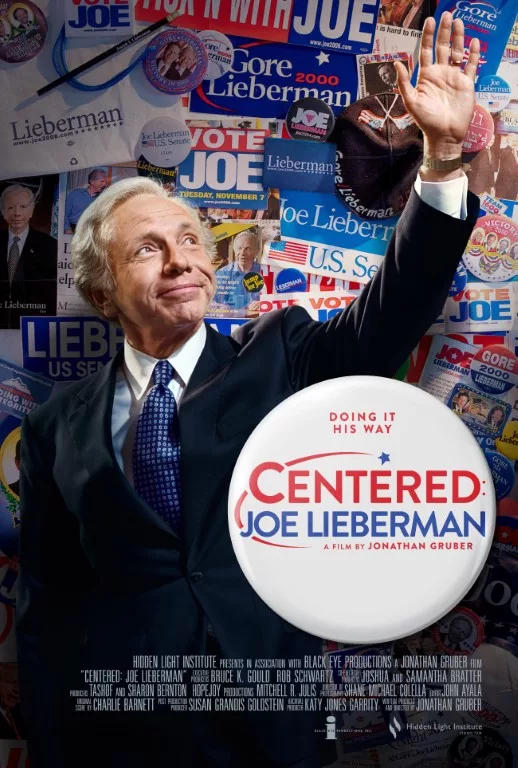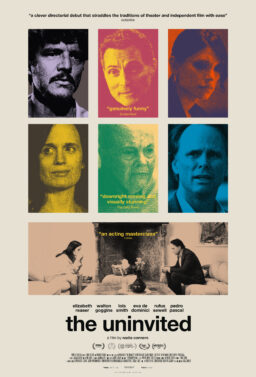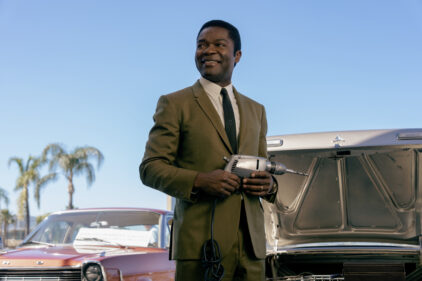“Centered: Joe Lieberman” is an unabashed but superficial love letter to the proudly bipartisan Senator from Connecticut who became the first Jewish candidate of a major party’s national ticket when he was Al Gore’s running mate in 2000. It is also a bittersweet love letter to a time that seems quaintly innocent in its civility, where political disagreements were about the best way to achieve common goals, not about what those goals were.
The most poignant moments in the documentary are the scenes of Democratic Senator Joe Lieberman traveling with Republican Senators John McCain and Lindsay Graham, calling themselves The Three Amigos. “It was so classically American,” Lieberman once said. “If you looked at our biographies, the three of us couldn’t be more different. Really, I mean, religiously, geographically, our own experience. Yet there we were in the U.S. Senate together, and we became just the fastest of friends.” Two of the amigos are now gone, and Graham’s days of such comity seem far in the past.
The film begins with the almost immeasurable difference between the contested election results in 2000 and 2020: the returns showed that George W. Bush won Florida by such a close margin that state law required a recount and Lieberman’s running mate, Al Gore, rescinded his initial phone call to concede. The battle ended up in the Supreme Court, which ruled in favor of Bush, by a margin of 537 votes. Al Gore tells the voters that while he disagreed with the decision of the Court, he would abide by it because that is what our Constitution requires. And then, we glimpse the attack on the Capitol following Donald Trump’s refusal to concede following his first term in office.
The overall tone of the film matches its gentle subject. It is a very conventional biographical documentary, with archival clips and admiring commentary from family and colleagues, sometimes accompanied by overly treacly, plinky music. It never digs into the issues or provides details about the negotiations and compromises he said were his specialty. We hear about his shomer shabbat devotion to keeping the Sabbath free from everything but prayer and family but never ask what Jewish beliefs sustained him or were foundational to his policy views or personal interactions. Instead, it focuses generally on his personal integrity and commitment to the public good and to the respectful and affectionate recollections of those who knew him.
After the 2000/2020 footage, we go back in time to see Joe Lieberman’s beginnings and how he became the man who stood by Gore’s decision and spent his career trying to build connections and find compromises. He grew up in a loving family of observant Jews; his grandparents on both sides were Eastern European Jews who came to America to find a better life for their families. He was always interested in history and politics. He attended the March in 1963 and heard Dr. Martin Luther King give the “I Have a Dream” speech, and he registered Black voters in Mississippi, explaining why in an editorial for the Yale newspaper. He wrote another urging the school to accept women students.
He was inspired and influenced by Abe Ribicoff, the first (and so far only) Jewish governor of Connecticut, and met his first wife working in Ribicoff’s Senate office as an intern. He won his first race for the state legislature only three years after graduation from Yale Law School. Recruiting volunteers on the Yale campus, Lieberman met a student from Arkansas named Bill Clinton, who volunteered for his campaign. He later served as Connecticut’s Attorney General, a position he recalled with special fondness. No centrist rhetoric for that one; his campaign slogan was “It’s time to get tough.” He quoted his favorite description of the job: “You’re on the side of justice; you’re on the side of the angels. All you do is sue the bastards.”
Lieberman took on the Senate’s most liberal Republican, Lowell Weiker, attacking from the right, and won his first term in the Senate in 1988, the biggest political upset of the year. He described himself accurately as “persistently, stubbornly bipartisan,” strong, even hawkish in defense, more liberal on social issues, and pro-environment. The legislative achievement he seems most proud of is the repeal of “don’t ask, don’t tell,” giving LGBTQ+ members of the military equal rights. The moral achievement he seems most proud of was making a statement critical of Bill Clinton’s sexual involvement with a White House intern.” His former campaign volunteer called him to say, “I was hurt by your speech, but I agree with everything you said.” He was proud of winning as an independent when he lost the Democratic primary for the Senate but did not connect that to the impact that independent candidate had on the Presidential race Gore lost by such a slim margin or to his later effort to create a bi-partisan national ticket by co-founding No Labels. It does not mention his inconsistency on some significant issues or give examples of his admitting to making a mistake.
Americans do not always put centrists and compromisers on their “most-admired” lists. We tend to pick and make documentaries about noisier folks, those who speak out and stand out, those who demand change with strong and often angry language. It is good to be reminded that we also need those who are, as Lieberman’s rabbi son tells us, “a supreme mensch down to the bone.”




















